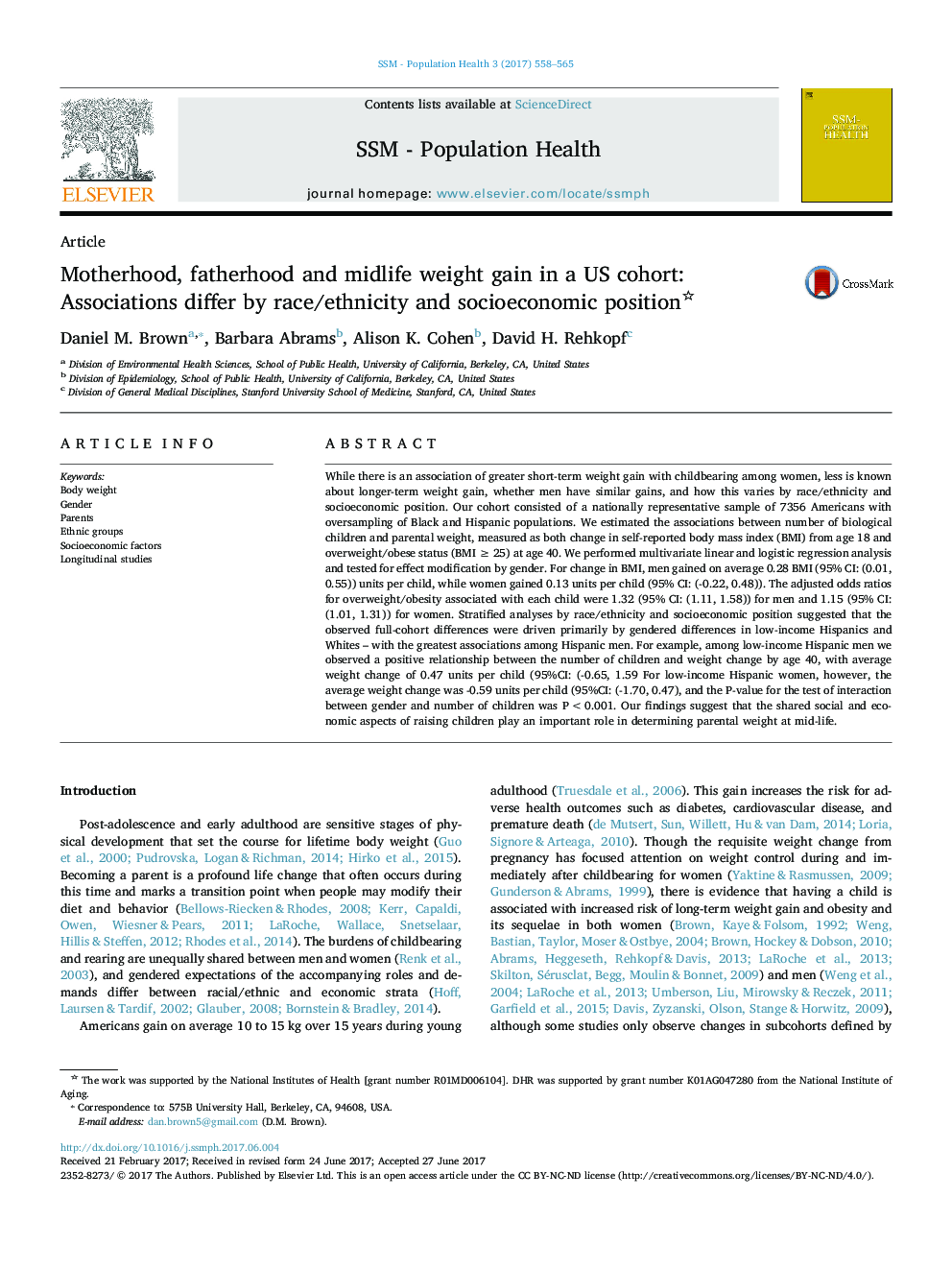| کد مقاله | کد نشریه | سال انتشار | مقاله انگلیسی | نسخه تمام متن |
|---|---|---|---|---|
| 5123289 | 1487259 | 2017 | 8 صفحه PDF | دانلود رایگان |
- Researchers have seen associations between having a child and short term weight gain.
- We examined the relationship of having children with long term weight gain by gender.
- We did not observe any evidence that women tended to gain more weight than men.
- In some subcohorts, we observed stronger associations among men than women.
- Hispanics of lower socioeconomic position had the strongest gendered difference.
While there is an association of greater short-term weight gain with childbearing among women, less is known about longer-term weight gain, whether men have similar gains, and how this varies by race/ethnicity and socioeconomic position. Our cohort consisted of a nationally representative sample of 7356 Americans with oversampling of Black and Hispanic populations. We estimated the associations between number of biological children and parental weight, measured as both change in self-reported body mass index (BMI) from age 18 and overweight/obese status (BMI ⥠25) at age 40. We performed multivariate linear and logistic regression analysis and tested for effect modification by gender. For change in BMI, men gained on average 0.28 BMI (95% CI: (0.01, 0.55)) units per child, while women gained 0.13 units per child (95% CI: (-0.22, 0.48)). The adjusted odds ratios for overweight/obesity associated with each child were 1.32 (95% CI: (1.11, 1.58)) for men and 1.15 (95% CI: (1.01, 1.31)) for women. Stratified analyses by race/ethnicity and socioeconomic position suggested that the observed full-cohort differences were driven primarily by gendered differences in low-income Hispanics and Whites - with the greatest associations among Hispanic men. For example, among low-income Hispanic men we observed a positive relationship between the number of children and weight change by age 40, with average weight change of 0.47 units per child (95%CI: (-0.65, 1.59 For low-income Hispanic women, however, the average weight change was -0.59 units per child (95%CI: (-1.70, 0.47), and the P-value for the test of interaction between gender and number of children was P < 0.001. Our findings suggest that the shared social and economic aspects of raising children play an important role in determining parental weight at mid-life.
Journal: SSM - Population Health - Volume 3, December 2017, Pages 558-565
